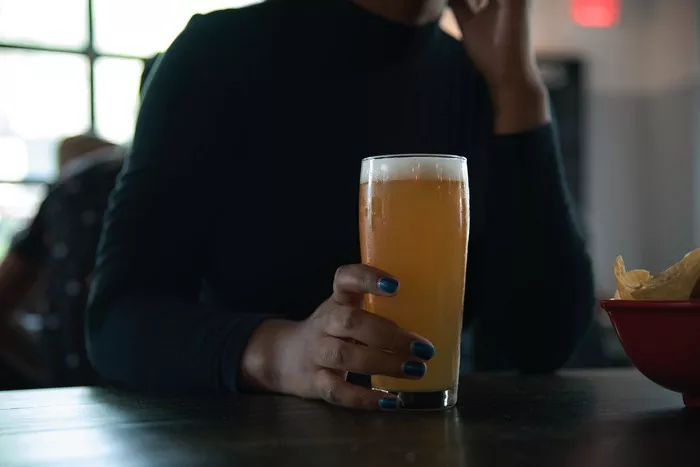For those following a ketogenic diet, navigating the world of alcoholic beverages can be tricky. While many cocktails and wines can be high in sugars and carbs, beer presents a unique challenge due to its carbohydrate content. However, not all hope is lost for beer enthusiasts on the keto diet. With careful selection, it is possible to enjoy beer while staying within your dietary goals. In this article, we’ll explore which beers are keto-friendly and provide tips for making smart choices when indulging in a cold brew.
Understanding the Keto Diet
Before delving into which beers are keto-friendly, it’s essential to understand the principles of the ketogenic diet. This high-fat, low-carb diet aims to put the body into a state of ketosis, where it burns fat for fuel instead of carbohydrates. To achieve and maintain ketosis, followers of the diet typically consume fewer than 50 grams of carbs per day, although individual needs may vary.
The Impact of Beer on Ketosis
Beer is known for its carbohydrate content, primarily derived from malted barley, wheat, and other grains used in the brewing process. These carbohydrates can quickly add up, making many beers unsuitable for those on a keto diet. Additionally, beer often contains sugars, which can further hinder ketosis.
Choosing Keto-Friendly Beers
While beer may seem off-limits for keto dieters, there are options available that are lower in carbs and sugars. When selecting a beer, look for those with lower alcohol by volume (ABV) and lighter body, as these tend to have fewer carbohydrates. Light beers, session IPAs, and certain styles like pilsners and kölsch are often lower in carbs compared to stouts, porters, and IPAs.
Reading Labels and Nutritional Information
One of the most reliable ways to determine if a beer is keto-friendly is by reading the label and nutritional information. Look for beers that explicitly state their carb content per serving. Be wary of terms like “lite” or “low-calorie,” as these do not necessarily mean low-carb. Instead, focus on the actual carbohydrate count listed on the label.
Common Keto-Friendly Beer Styles
Certain beer styles naturally lend themselves to being more keto-friendly due to their lower carbohydrate content. For example, light lagers, such as American lagers and European pilsners, are typically lower in carbs compared to heavier, maltier styles. Similarly, session IPAs, which are lower in alcohol and lighter in body, can be a good option for those watching their carb intake.
Avoiding High-Carb Additions
Some beers may contain added ingredients that can significantly increase their carbohydrate content. For example, fruit-flavored beers, spiced ales, and beers brewed with added sugars or syrups are likely to be higher in carbs. When in doubt, opt for beers brewed according to traditional methods with minimal additives.
Low-Carb Brewing Techniques
In recent years, some craft breweries have begun experimenting with low-carb brewing techniques to cater to health-conscious consumers, including those on keto diets. These techniques may involve using alternative grains, such as rice or corn, in place of traditional barley and wheat. Additionally, brewers may employ enzymes to break down complex carbohydrates into simpler sugars that can be fermented into alcohol, resulting in a beer with fewer residual sugars and carbs.
Moderation is Key
While some beers may be lower in carbs than others, it’s essential to remember that alcohol itself contains calories and can interfere with ketosis if consumed in excess. Additionally, alcohol can lower inhibitions and lead to poor food choices, which can sabotage your keto diet goals. As with any dietary indulgence, moderation is key when enjoying beer on a keto diet.
Tips for Enjoying Beer on a Keto Diet
If you’re planning to indulge in beer while following a keto diet, here are some tips to help you make smart choices:
Plan Ahead: Before heading out to social gatherings or events where beer will be served, research your options ahead of time. Look for breweries or bars that offer low-carb beer choices.
Choose Lighter Options: Opt for lighter beer styles, such as lagers, pilsners, and session IPAs, which are typically lower in carbs than heavier styles like stouts and porters.
Read Labels: Always read the label and nutritional information before purchasing or consuming a beer. Look for beers with the lowest carbohydrate content per serving.
Watch Portions: Be mindful of portion sizes and stick to one or two servings to avoid consuming excess carbs and calories.
Stay Hydrated: Alternate alcoholic beverages with water to stay hydrated and help mitigate the dehydrating effects of alcohol.
Pair with Keto-Friendly Foods: If you’re enjoying beer as part of a meal, pair it with keto-friendly foods like grilled meats, seafood, and leafy greens.
Monitor Ketone Levels: If you’re concerned about how beer may impact your ketosis, consider monitoring your ketone levels using urine strips or a blood ketone meter.
By following these tips and making informed choices, you can enjoy beer while staying true to your keto diet goals.
Conclusion
While beer may not be the most keto-friendly beverage choice, it is still possible to indulge in moderation while following a ketogenic diet. By selecting beers with lower carbohydrate content, reading labels carefully, and practicing moderation, you can enjoy a cold brew without derailing your dietary goals. Remember to prioritize your health and listen to your body’s cues when enjoying beer on a keto diet. With the right approach, you can savor the flavors of your favorite beers while staying on track with your keto lifestyle.


